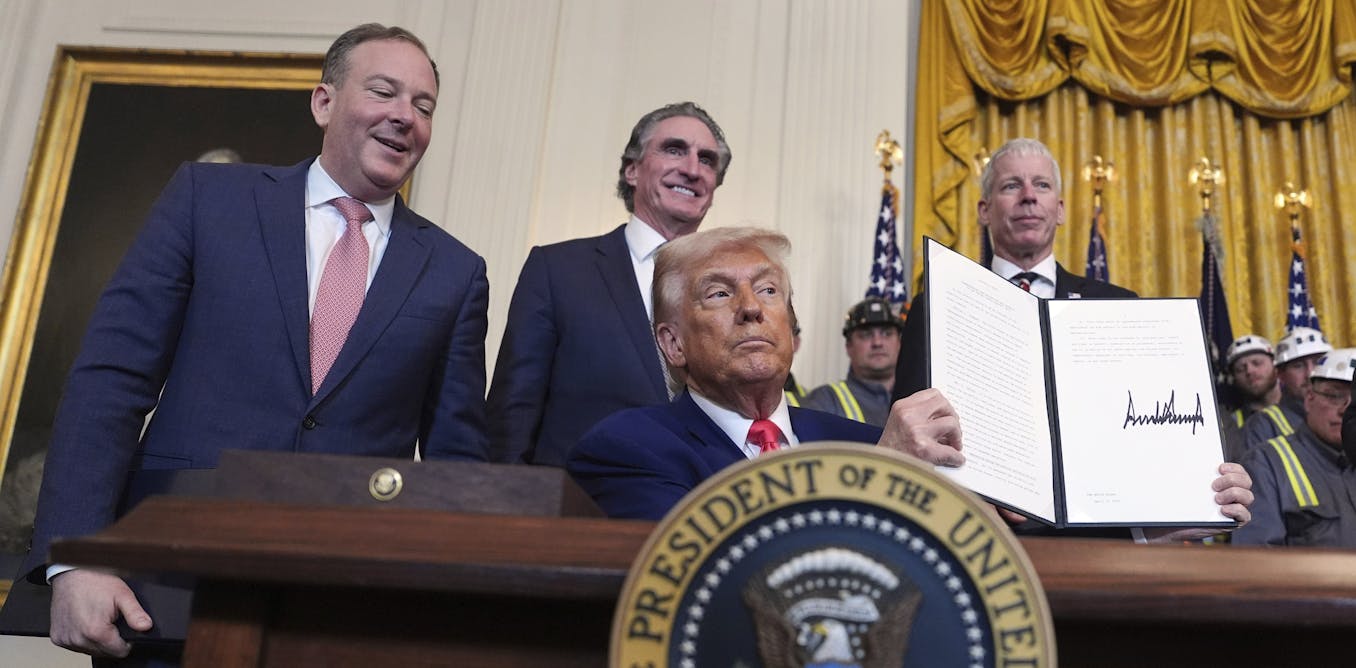A video of a Las Vegas Tesla dealership that had been set on fire by anti-Elon Musk protesters was posted on March 18, 2025, by an account on X called EndWokeness.
The next day Musk replied to the post, “Some people just want to watch the world burn,” an iconic line from the 2008 Batman film “The Dark Knight.” Alfred, the Wayne family’s faithful butler, says the line to Bruce Wayne – Batman – to describe the motivations behind the Joker’s chaotic acts of violence.
Musk – and Alfred – was right. Some people do, in fact, say they think that society should be burned to the ground. It’s part of a psychological measure political psychologists created called “need for chaos.”
New data from the Center for Political Communication at the University of Delaware suggests that those people – the ones who want society to burn – are the ones with more, not less, trust in Musk. They also report more trust in the Department of Government Efficiency, the government entity Musk advises, which the Trump administration claims it created to cut government waste and fraud.
Yet, critics point out that Musk and DOGE’s seemingly indiscriminate approach to spending cuts risks damaging the infrastructure necessary for American innovation.
This desire to watch the world burn doesn’t come out of nowhere.
Fear of losing status
Somewhat like the Joker, whose perpetual sense of victimhood – “You wanna know how I got these scars?” – drove his need for chaos and destruction, people can develop a need for chaos in response to a sense that they are losing.
When political psychologists introduced this concept of “need for chaos” in 2021, they described it not as a psychological trait, but as a character adaptation that occurs when some people experience a cultural and political situation that makes them feel like they are losing status and power. For some people, this feeling triggers a desire to “burn it all down” – “it” being society, institutions, the world – maybe to rebuild it all anew, or maybe just to see it all destroyed.
Only a small percentage of the U.S. population – less than 15% – tends to score high in need for chaos. But even so, understanding this minority is important to gaining insight into this political moment.
For example, people who score high in need for chaos exhibit greater support for political violence and a willingness to knowingly share hostile and false information online. And in our data, those higher in need for chaos report holding more trust in Musk, DOGE and Trump than people who score lower in the need for chaos measure.
Who wants to burn it down
We are political psychologists who study the link between psychological traits and political beliefs. Last month, the University of Delaware’s Center for Political Communication ran a national survey that we designed to understand where the public stands on various political issues and how those beliefs relate to psychological traits, including need for chaos.
In our national study of 1,600 Americans conducted between Feb. 27-March 5, 2025, by YouGov, we asked respondents how much they agreed or disagreed with the following statements:
• “I fantasize about a natural disaster wiping out most of humanity such that a small group of people can start all over”
• “I think society should be burned to the ground”
• “We cannot fix the problems in our social institutions; we need to tear them down and start over”
• “I need chaos around me – it is too boring if nothing is going on”
Similar to prior work by author Kevin Arceneaux and his colleagues, our data shows that a very small number – fewer than 20% of the sample – agrees strongly or agrees somewhat with each item.
However, looking at need for chaos among groups of varying ages, education levels and media habits, we find the highest need for chaos scores among people under age 40, those with less education, and those who pay the least attention to politics.
Burning it down through government policy
Our new data also shows that while people highest in need for chaos report having more trust in Musk, DOGE, and President Trump, these chaos-seeking folks report having less trust in “people in general,” journalists or the federal government. These findings hold even when statistically accounting for other factors, among them party, race, gender, education and ideology.
Musk’s penchant for wielding chainsaws as a symbol of DOGE’s work provides some insight into why chaos seekers may like what they see in Musk.
It’s not clear exactly what Musk’s aim is with his work at DOGE, as he eliminates the jobs of hundreds of thousands of government workers.
What is clear, however, is that by many accounts, the mass firings and the gutting of agencies, like the U.S. Agency for International Development and the Institute for Peace, are sowing chaos. And a significant portion of Americans want just that.




